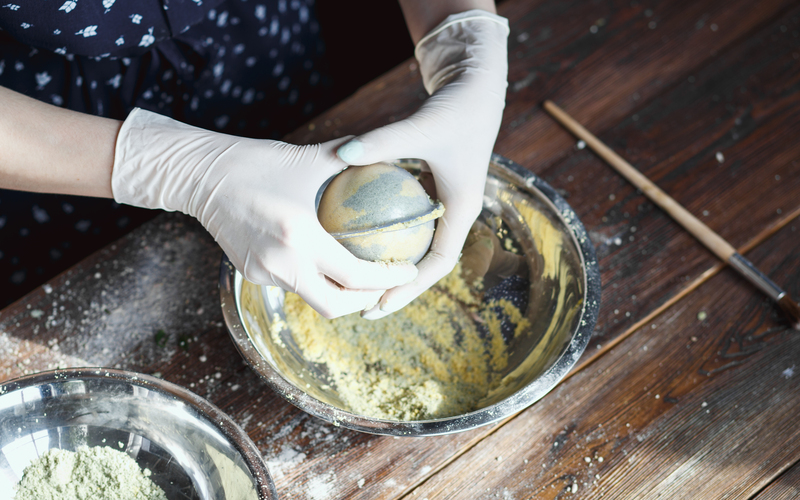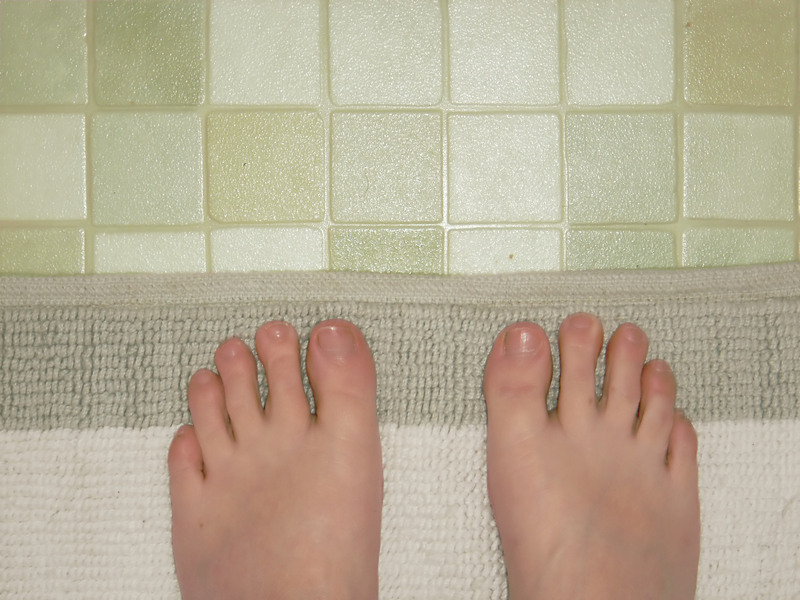Unlock the Guide to Evicting Pet Odors
Posted on 21/06/2025
Unlock the Guide to Evicting Pet Odors
Animals enrich our lives, offering companionship, laughter, and love. However, owning a pet can often introduce stubborn, lingering smells that infiltrate furniture, floors, and fabrics. If you've tried every air freshener and still struggle with persistent animal scents, you're not alone. Evicting pet odors requires a comprehensive approach to address the source, eliminate the smell, and prevent recurrence. This ultimate guide reveals proven methods, top products, and expert advice for removing pet odors from your home for good.
Understanding Why Pet Odors Linger
Before completely removing pet odors, it's helpful to understand where these scents originate and why they can be so tough to eliminate:
- Urine and Feces: One of the most common sources, these accidents leave behind ammonia and bacteria that produce strong odors.
- Pet Dander: Small flakes of skin and fur carry natural oils with distinctive animal smells.
- Saliva: Pets often lick themselves and surfaces, spreading proteins that attract bacteria and smells.
- Ear and Skin Infections: Health issues can cause abnormal odors that persist, even with cleaning.
- Poor Cleaning Methods: Simply masking smells with sprays leaves the root cause unaddressed, so the odor returns.
From dog odor removal on carpets to cat urine stench in hidden corners, every pet owner needs a comprehensive toolkit and routine.

Step-by-Step: How to Remove Pet Odors at Home
Effective pet odor elimination involves more than just surface cleaning. Below is a detailed, step-by-step guide to ridding your home of unpleasant animal smells.
1. Identify and Locate the Source
- Use your nose for detection, but also consider UV black light flashlights which make urine stains fluoresce.
- Check hidden spots: under furniture, baseboards, and in corners.
- If possible, confine pets during training to reduce mystery odors.
2. Act Fast: Address Accidents Immediately
- Blot wet stains with paper towels or clean rags before any cleaning solution.
- Remove solid matter first; avoid rubbing, which can push matter into fibers.
- The faster you respond, the less likely the odor will set in.
3. Choose the Right Cleaning Products
- Enzymatic Cleaners: Specially formulated products that break down the proteins in pet urine and feces, truly neutralizing the odor.
- Baking Soda: An old standby, it naturally absorbs smells from carpets and upholstery. Sprinkle generously and vacuum after a few hours.
- White Vinegar Solution: Mix with water (1:1 ratio) to help neutralize odors and kill bacteria. Great for hardwood floors and tile.
- Hydrogen Peroxide: Effective on stained fabrics and carpets, but test on an inconspicuous area first to avoid discoloration.
- Activated Charcoal: Place in pots or open containers to passively absorb lingering air odors.
Tip: Avoid ammonia-based cleaners--they can mimic the smell of urine and may draw pets back to the same spots to repeat the offense!
4. Deep Cleaning: Carpet, Rugs, and Floors
- Rent a carpet cleaner or hire professionals for deep-set pet odors in carpets or large rugs.
- Use pet-safe shampoo or cleaning solution.
- Launder small rugs with one cup of baking soda or 1/2 cup of apple cider vinegar for extra odor-removing power.
- Mop hard floors with vinegar and water; rinse thoroughly to prevent sticky residue.
Repeat treatments may be necessary for stubborn spots.
5. Upholstery and Fabric Odor Removal
- Check fabric tags before applying any cleaning solution.
- Use enzymatic sprays specifically designed for furniture and upholstery.
- For machine-washable items, wash with regular detergent and add a cup of vinegar or baking soda.
- Vacuum regularly to prevent the buildup of dander and hair.
6. Airing Out and Improving Ventilation
- Open windows and doors whenever possible to maximize air flow.
- Use HEPA air purifiers to capture airborne dander and neutralize smells.
- Replace HVAC filters monthly if you have multiple pets.
7. Cleaning Pet Bedding & Accessories
- Machine wash pet beds, blankets, and toys weekly.
- Spray hard-to-wash items (scratching posts, carriers, collars) with enzymatic cleaner or wipe with vinegar solution.
- Rotate and replace older items harboring persistent odors.
Top Tips for Preventing Pet Odors
Once you've achieved a fresh start, prevention is key to maintaining a clean, odor-free environment. Here's how to keep animal smells from coming back:
Maintain Regular Cleaning Routine
- Vacuum and mop frequently--at least twice a week for homes with multiple pets.
- Launder soft furnishings and pet bedding weekly.
Groom Pets Properly
- Brush dogs and cats regularly to reduce loose hair and dander.
- Bathe pets according to breed guidelines, using pet-safe shampoos.
- Address ear and skin issues promptly to avoid infections and associated smells.
Manage Litter Boxes & Bathrooms
- Scoop litter boxes daily and change litter weekly.
- Place litter boxes in well-ventilated areas, away from high-traffic zones.
- Consider litter box deodorizers or unscented baking soda for extra freshness.
Invest in Quality Cleaning Products
- Keep a variety of pet odor neutralizer sprays and enzymatic cleaners on hand.
- Try natural solutions (vinegar, baking soda) alongside commercial products for a one-two punch.
Control Humidity
- High humidity can make pet smells worse. Use dehumidifiers in problem areas.
- Run fans and air conditioning to control moisture and boost ventilation.
Frequently Asked Questions about Evicting Pet Odors
How do you get rid of pet urine smell permanently?
Pet urine can soak deep into carpet pads and subflooring. For permanent pet odor removal, use an enzymatic cleaner multiple times, allow it to dry fully, and repeat if needed. For deeply set odors, professional steam cleaning or, in rare cases, replacing carpet padding may be necessary.
Are air purifiers effective against pet odors?
Yes, HEPA air purifiers are excellent for capturing pet dander and airborne odor particles. Some purifiers include activated carbon filters specifically designed to absorb volatile organic compounds (VOCs) and persistent smells.
Can essential oils help with pet odors?
Certain essential oils (e.g., lemon, lavender) may help freshen air. However, be very cautious: many essential oils are toxic to pets. Always research safety and consult a vet before use.
Why does my house still smell even after cleaning?
Odors can penetrate sub-surface materials or linger in HVAC systems, causing smells to reappear. Sometimes, not all soiled spots have been found. Consider using a black light to find hidden stains and treat all affected materials. Regular maintenance is essential.
Best Commercial Products for Pet Odor Removal
The market is filled with options for pet smell removal, but which work best? Here are some top-rated products favored by pet owners and cleaning professionals:
- Nature's Miracle Stain & Odor Remover: An enzymatic formula safe for carpets, hard floors, and fabric.
- Angry Orange Pet Odor Eliminator: A citrus-powered spray, great for neutralizing urine and fecal smells.
- Rocco & Roxie Professional Strength Cleaner: Highly rated for deep pet odor extraction in carpets and rugs.
- Bissell Pet Stain Eraser: A portable carpet cleaner designed for speedy, targeted cleaning.
- Arm & Hammer Pet Fresh Odor Eliminator: Odor absorbing powder to sprinkle on carpets before vacuuming.
Always follow the manufacturer's directions and test in a small area before applying any new product throughout your home.
Natural DIY Solutions for Evicting Animal Smells
If you prefer to avoid chemicals, these natural remedies can help you eliminate pet odors in a safe, eco-friendly way:
- Baking Soda Paste: Mix baking soda with water to a thick paste, apply to stains, let sit, then scrub and vacuum.
- Lemon Juice: A natural deodorizer, lemon juice can be diluted with water and sprayed on hard surfaces.
- Apple Cider Vinegar: Use in place of white vinegar for a slightly sweeter scent and excellent deodorizing properties.
- Sunshine: For washable fabrics and pet items, hanging in direct sunlight naturally kills bacteria and freshens fibers.

When to Call the Professionals
Despite your best efforts, some pet smells may persist. If you've tried repeated treatments and the odor lingers, it may be time to contact professional cleaning services. Specialized equipment, such as truck-mounted hot water extraction and industrial ozone generators, can tackle even the most stubborn cases.
- Professional carpet and upholstery cleaning for set-in smells
- HVAC duct cleaning if pet odors persist in central air systems
- Remediation services for homes with extensive pet damage
Conclusion: Evicting Pet Odors is Possible!
It may seem overwhelming to keep your house free of animal odors, but with dedication and the right methods, you can maintain a fresh, welcoming home. Remember:
- Act quickly on new stains for the best results.
- Use enzymatic cleaners to break down and neutralize odor at its source.
- Adopt regular cleaning routines to prevent smells from returning.
- Consider professional help if odors become unmanageable.
Your love for pets doesn't mean you have to accept perpetual pet smells. With this comprehensive, SEO-optimized guide to evicting pet odors, you can confidently reclaim your home for both you and your furry friends!
If you found this guide helpful, share it with your fellow pet owners, and say goodbye to pet odors for good!
Latest Posts
Succeed in Streak-Free Windows with These Pro Tips
Master the Art of Decluttering Damp Smells from Your Home
Find clarity and cleanliness with our Spring-inspired Deep Clean checklist



